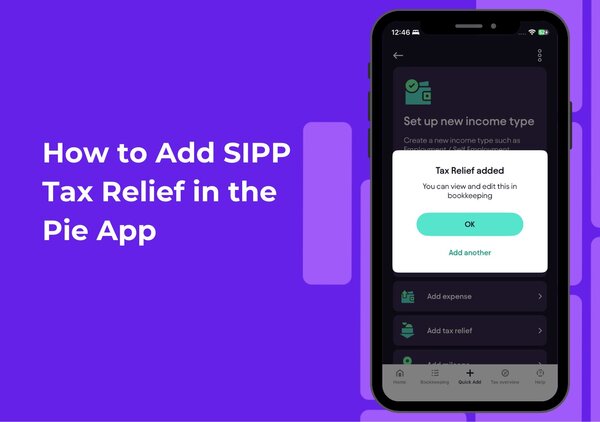Student loans can feel like a puzzle when tax season rolls around. Many UK graduates worry about how their repayments mix with their tax duties. If you're also curious about how business loans impact UK tax bills, it's worth exploring how different types of borrowing affect your tax situation.
The good news? Understanding student loan tax rules is simpler than you think. Most people find the system works quite smoothly once they grasp the basics.
In this article, we'll cover everything you need to know about student loans and tax in the UK.
What exactly is a student loan in the UK?
A student loan is money the government lends you to pay for university. It covers your tuition fees and helps with living costs while you study.
For living costs such as accommodation, food, and travel, you can apply for a Maintenance Loan. There is a maximum maintenance loan amount, which is the upper limit of financial support available for living costs, and this amount can vary depending on factors such as where you live and study.
Unlike credit cards or personal loans, you don’t start paying it back straight away. Repayments only kick in when you earn above a certain amount each year.
The government sets interest rates, and they change annually based on inflation. Your loan won’t show up on credit checks like other debts do.
After 30 years, any remaining debt gets wiped clean automatically. This means you’re not tied to student loan payments for life.

Types of student loans and funding available
When it comes to paying for higher education in the UK, there are several types of student loans and funding options to help cover the full cost of university or college. The Student Loans Company manages these loans, and you can apply for support through the student finance system.
Tuition Fee Loans are designed to cover your tuition fees, which are paid directly to your university or college. This means you don’t have to worry about paying tuition fees upfront. For living costs such as accommodation, food, and travel, you can apply for a Maintenance Loan. Maintenance loans are paid directly into your bank account, giving you extra money to help with day-to-day expenses while you study.
Whether you’re an undergraduate student or returning to education, it’s important to explore all the funding options available to you. The amount you can borrow or receive often depends on your household income, the course you’re studying, and your personal circumstances.
How do student loan repayments work with your salary?
Your employer takes student loan payments directly from your wages. It happens through PAYE, just like income tax and National Insurance contributions.
You pay 9% of everything you earn above the threshold amount. The threshold changes depending on which repayment plan you're on.
Plan 1 graduates start paying when they earn over £22,015 per year. Plan 2 graduates begin repayments at £27,295 annually.
Your payslip will show exactly how much gets deducted each month. However, many people don't realise they can check this figure against their expected repayments.

What happens to your student loan when you're self-employed?
Self-employed people handle student loan repayments through their annual tax return. You'll pay alongside your income tax and National Insurance contributions when you file.
HMRC works out what you owe based on your yearly profits. If your liability is high enough, you might need to make payments on account.
Keep good records of your income to make sure calculations are accurate. Furthermore, you can make extra payments throughout the year if you want to pay it off faster.
Many freelancers find it helpful to set aside money monthly for their student loan repayments. This prevents a nasty surprise when the tax bill arrives.
Can you claim any tax relief on student loan interest?
Unfortunately, you can't claim tax relief on student loan interest in the UK. The interest that builds up on your loan isn't tax-deductible at all.
This applies to all types of UK student loans, regardless of when you took them out. Even if you make extra payments, there's no tax benefit involved.
The system is designed to be straightforward rather than offering tax breaks. Many other countries do offer tax relief, but the UK keeps things simple instead.
However, this does mean your effective interest rate is higher than it appears. Since you can't offset the interest against tax, you're paying the full cost.

What should you do if your student loan deductions seem wrong?
First, check your payslip carefully to see exactly what's being taken out. Contact HMRC's student loan repayment team if something looks off to you.
Your employer might have outdated information about your repayment plan. This happens more often than you'd think, especially after job changes.
Keep records of all your repayments for your own peace of mind. If you've paid too much, you can usually get a refund from HMRC.
Regular checking helps you spot any mistakes before they become big problems. Additionally, it's worth reviewing your student loan statement annually to track your progress.
Managing changes in your circumstances
Life can change quickly while you’re at university or college, and it’s important to keep your student finance details up to date. If your circumstances change such as a shift in household income, moving to a new address, or changing your course you should let Student Finance England or your local student finance authority know as soon as possible.
You can update your information easily through your student finance account online, or by contacting Student Finance England directly. Keeping your details accurate ensures you receive the right amount of funding and that your loan payments are correct. Failing to report changes could lead to overpayments or underpayments, which might affect your finances later on.
Using a student loan calculator
A student loan calculator is a handy tool for anyone looking to plan their finances around student loan repayments. You can find calculators on the Student Finance England website and other trusted online resources. By entering details like your total loan amount, interest rate, and expected repayment term, you’ll get an estimate of your monthly payments.
These calculators can also help you compare different repayment plans, so you can see how your payments might change if your circumstances change or if you choose a different plan. Knowing how much interest you’ll pay over time and what your monthly payments will be can help you make informed decisions about your student finance.
Using a student loan calculator is a smart way to take control of your financial future, plan your budget, and avoid surprises when it’s time to start making payments.

Getting your taxes sorted properly
Understanding student loans and tax doesn't need to keep you awake at night. The system works automatically for most people once it's set up correctly.
Remember that repayments adjust with your income, so you never pay more than you can handle. If you're ever unsure about your situation, professional help is always available.
Pie is the UK's first personal tax app, helping working people manage their tax duties with ease. It's the only self assessment tool that combines bookkeeping, live tax calculations, simple return filing, and expert guidance all in one place.
Ready to take control of your taxes? Visit Pie.tax today and see how simple tax management can be.











